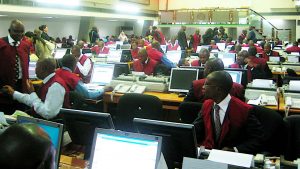By TZ Business News Staff and Agencies.
Two cross-border investment reports have identified major Foreign Direct Investment (FDI) 2018 success stories in the continents of Africa, Asia and North America, with Nigeria seen as best destination in Africa. The United States of America has become ‘great again’. .
The USA has overtaken India as world’s best FDI destination, according to the 2018 Financial Times FDI report, which says the US has reclaimed the top spot from India after recording $87.4bn of [2017] announced FDI.
FDI into western Europe increases 4% by number of projects and 13% by capital investment, the FDI 2018 Report says. China regained its FDI crown in Asia-Pacific, accounting for 26% of capital investment in the region. FDI into the UK declined by (-10%)across project numbers and by (-5%) in capital investment.
A contact in South Africa tells TZ Business News in the meantime, that Nigeria will be the cross-border investment hotspot on the African continent in 2018. Angela Mathewson has reported from Johannesburg that Lagos, Nigeria’s business capital, will be “the must-watch market in Africa for capital raising in 2018”.
The west African city is identified as such by the Baker McKenzie’s Cross-Border Index.
“More companies are lining up to list on the Lagos stock exchange, kick starting Nigeria’s IPO market after a long drought,” explains Wildu du Plessis, Head of the Capital Markets Group at Baker McKenzie in Johannesburg.
He notes that sources familiar with the matter have said that two companies – Skyway Aviation Handling Company (SAHCOL) and Nigerian Reinsurance Corporation – were preparing for initial public offerings this year, while Singapore-owned Indorama Eleme Petrochemicals Ltd plan a public float in Lagos next year.
“IPOs dried up in Nigeria after a 2008 crash, aggravated by the global financial crisis, wiped more than 60 percent off the stock market’s capitalization. The benchmark share index has since recovered, gaining 42 percent last year but IPOs have yet to resume, apart from oil company Seplat’s dual listing in Lagos and London in 2014,” du Plessis says.
On the whole, domestic and cross-border Initial Public Offering (IPO) capital raising by African issuers in H1 2018 increased by 33% year-on-year to USD 396 million, while volume grew by 25% to 5 IPOs. However, the Index also shows that when compared to the same period in previous years, IPO activity in H1 2018 is low: compared with H1 2016, capital raising is lower by 35%; compared with H1 2015 and H1 2014, value is down by around 70%.
During the first half of 2018, the largest IPO deal in Africa was Libstar Holding Ltd’s launch on the Johannesburg Stock Exchange (JSE), raising USD 243.8 million in early May 2018. One of the most anticipated IPOs in the region is MTN Group’s Ghana offering, which could raise as much as USD 500 million when it closes by 31 July 2018. This year, one of most talked about IPOs, dual listed on the London Stock Exchange and the JSE, was Vivo Energy’s floatation, which raised over USD 740 million in May. This was the largest listing of an Africa-focused business since 2005.
“We have noted an increase in enquiries from our clients around listings and IPOS on the Johannesburg Stock Exchange, as well as interest in listing in other jurisdictions in Africa. Cross border capital raising is seen as a good way for investors to raise money in Africa,” du Plessis says.
Du Plessis, who is also the Head of Africa at Baker McKenzie in Johannesburg, notes that a number of African companies are planning to list in the near future.
“It looks like the coming years could be the best for capital raising in Africa since the global financial crisis,” he says.
“In general, investors are beginning to delve deeper into African markets than they have before, they are making sure they know and understand each specific target market. They are looking at a target country’s approach to governance and corruption; is there rule of law? They look at the GDP and how that impacts on population growth and economic growth and the interplay between them. They look at policy and regulation, location, infrastructure and pricing. They are aware that no two countries are the same in Africa, that each market is unique and that they have to be nimble and adaptable in their approach,” he adds.





